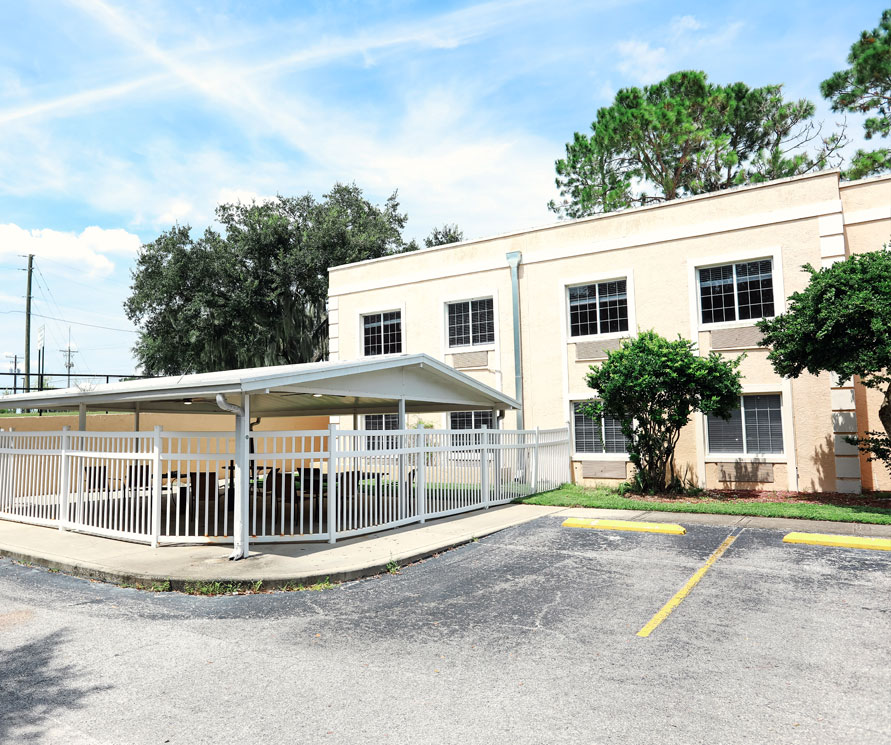Project Description
What is Medication Management Therapy?
Medication management therapy – or MMT – is a treatment system used by doctors and pharmacists to ensure that patients are receiving optimal therapeutic outcomes for the prescription medications that they may be taking. Medication Management Therapy is used to cover a broad range of professional activities, such as:
- Performing patient assessments or a comprehensive review of prescriptions and their possible interaction or side effects.
- Formulating both short and long term medication treatment plans.
- Monitoring the safety and efficacy of any and all prescription medication plans.
- Ensuring directional or instruction-based compliance through patient education.
- Better documentation and communication between MTM service providers in order to maintain a high standard of care among medical professionals.
In short, medication management therapy is a cumulative effort between pharmacies (and often healthcare providers and other medical professionals) to ensure that drugs are being used as prescribed while limiting chances for abuse and to ensure that patients are educated and able to use the prescription properly for their specific ailment.
Since 2004, eleven national pharmacy organizations have adopted this as the standard for MTM care.
Methods Used in Medication Management Therapy
Medication therapy management includes five core components that the American Pharmacists Association and the National Association of Chain Drug Stores Foundation laid out in a comprehensive service model that more than half a dozen additional pharmacy-related associations have since adopted.
These components are:
Medication therapy review (MTR): This is a systematic process of patient-specific data collection that helps pharmacists to assess medication therapies that could help to identify medication-specific problems and formulate a plan to resolve them. This step often takes the form of a spoken or written (often a checklist) consultation that helps the pharmacist determine if the medication provided gives the patient the best chance at recovery or management of specific conditions with the smallest risk of adverse side effects. If there is a better alternative, the MTR will help the pharmacist to find it.
Personal medication record (PMR): This is essentially a list of all other prescription medications that you are currently on, or have been taking in the recent past. Additional items on this record include herbal products, non-prescription medication, and dietary supplements. The PMR allows pharmacists to assist the patient with his or her overall medication therapy self-management and ensure that there are minimal chances for inter-drug reactions or serious adverse side effects due to certain cocktails of prescription medication.
Medication-related action plan (MAP): The MAP is essentially a document created that details a list of actions to take (or not take) in order to better track progress for achieving specific health goals while on the medications. For example, if you are affected with crippling anxiety, the MAP will provide you with steps to take (and not take) as well as information you need to properly assess whether or not the medication is helping to combat the condition or to better deal with it.
Intervention and/or referral: Some patients’ conditions or therapies may be highly complex, and as such, the pharmacist can often intervene if the patient shows a lack of general understanding of the condition or its treatment protocol. This often leads to direct interaction with the pharmacist and the prescribing physician in order to determine if additional monitoring, patient education, or a return visit to the doctor is needed.
Documentation and follow-up: This documentation is intended to be a complete record of patient care steps as well as a documented history of medications, past interactions or unintended side effects, and as such, this document needs to be updated periodically. This update typically happens when the patient’s care is transferred from one care setting to another, a prescription change is made, or when requested by the patient themselves.
What to Look for When Finding a MTM Specialist.
Most pharmacy associations now adhere to MTM or a modified strategy when dealing with medication or prescription management. As such, your local pharmacy often has just what you need. However, just like any other patient care service, if you aren’t particularly pleased with the way your pharmacist or MTM specialist handles your needs, then you are free to search for others who may be more accommodating.
What is Psychiatric Medication Management?
This is when psychiatrists or psychiatric practitioners give psychiatric medication management and assessment to patients. If you are not sure if medications are the best option for you a psychiatrist or practitioner can be of great assistance to you to explore your options. There are a lot of unknowns when it comes to the medications that are available, however understanding how a professional can help you, and learning what medication management means will help ease all of the unknowns. Also being aware of what to expect with a psychiatric assessment will reduce your anxiety about it.
Our mental health is connected with our overall physical health and sense of well-being. Negative experiences like trauma can leave us feeling anxious, overwhelmed and depressed. If we don’t seek treatment, these feelings can lead to behaviors that are destructive to our lives and relationships. Like it is important to have a physical every year by your doctor, it’s just as important to have a mental health check-up, as well.
A psychiatrist or psychiatric practitioner will give you an initial checkup similar to what a primary care provider might do. This checkup is called an assessment, and it is basically an overview of your symptoms that will help with the determination of whether or not medication is a good option in the treatment of your mental health concerns. Primary care doctors address your physical care, psychiatrists use the form of discussion to get to the core of your mental health concerns.
Then as a result of the assessment, a diagnosis is made and a treatment plan is designed for your particular needs. If medication is decided to be the best option you will be informed and educated about the medication uses, and side effects.
First, you have to agree on medication and treatment options, then the medication will be prescribed for a trial period in order to observe the effectiveness. This is the medication management, aspect of psychiatric care. They monitor how helpful the medication is over a period of time to determine if the treatment meets your goals. It is important to note that due to how psychiatric medications react differently to everyone, the effectiveness of the medications varies from person to person. Every person has unique brain chemistry that works differently with every drug, no two people will have the same response.
Medications are often used with other forms of treatment like counseling, family therapy, and/or behavioral therapies. With careful monitoring and continuous discussion, you can find the right medication and treatment plan for you.
It is important to remember that the use of prescription medications always introduces potential risks and side effects. These should all be discussed in detail with you by your psychiatrist. There are many psychological problems that do not need medicines, however, there are instances where prescription medicines are a good option for patients that are struggling.
Overall, medicines are an important part of the treatment of many mental illnesses like depression, schizophrenia, bipolar disorder, anxiety, panic, sleep problems, attention deficit disorder, etc.
Just know that with any treatment there are no magic bullets. Working on your mental health takes work and time. No medication can do the work for you. Getting better means taking an active stance towards the problems and challenges you face. Overall, medications are one tool that can help you to feel better. However, physical exercise, eating well, avoiding nonprescription drugs, maintaining good relationships, learning new ways to cope with stress and anxiety are all ways to work on getting better.
When an older loved one begins struggling to maintain their safety and independence at home, families often begin searching for senior care options. Finding a solution that will keep the senior safe while allowing them to feel independent is usually the goal.
Fortunately, assisted living is a type of care that meets those criteria.
Answering Commonly Asked Questions about Assisted Living
Q: What is assisted living?
A: Assisted living communities are a popular option for older retired adults because they combine independence with assistance. Residents of an assisted living community appreciate having their own apartment or suite. This allows them to maintain their autonomy and independence while knowing the support of caregivers is nearby around the clock.
Q: What types of care and services are offered in an assisted living community?
A: Assisted living residents can receive help with personal care and the activities of daily living (ADL), including bathing, dressing, grooming, and toileting. Many also require support with medication management.
Well-balanced meals, healthy snacks, housekeeping services, laundry, transportation, life enrichment activities, and wellness programs are usually included in the resident’s monthly fee.
Q: How is an assisted living community different from a nursing home?
A: Families often think an assisted living community is just a fancier version of a nursing home. These two types of senior housing may seem similar, but are, in fact, very different. Assisted living communities focus on providing a level of support that is more custodial in nature and less medically complex. Residents usually need help with two or three activities of daily living: bathing, grooming, dressing, toileting or continence care, and transferring (i.e., from one chair to another).
Residents often need assistance managing their medications, too.
By contrast, residents of a nursing home have more complex medical needs. A resident might live with diabetes and need skilled nursing care to tend to chronic wounds. Or they might have an illness like chronic obstructive pulmonary disease (COPD) that requires support from a respiratory therapist.
Q: Does Medicare pay for an assisted living community?
A: The answer to this question is sometimes surprising for older adults and their loved ones: Medicare doesn’t help finance assisted living.
Medicare is a health insurance program designed to pay for the health care-related expenses of seniors and younger people who have disabilities. Because assisted living doesn’t meet that criteria, seniors and their families must rely on other types of financing for assisted living.
Q: Are residents allowed to have pets in assisted living?
A: Many assisted living communities allow pets, though there might be size restrictions. Some require the resident to manage their pet independently, while others offer services to help the senior care for their pet.
If you or your senior loved one has a pet that will be making the move too, ask the community for a copy of their pet policy.
Q: Do residents have to sign a long-term lease at assisted living communities?
A: Contracts and resident agreements differ from community to community. In general, most communities only require a month-to-month contract or lease.
Q: Can residents decorate their own apartment?
A: Yes! Communities typically welcome this as it helps the senior create an environment that looks and feels like home. Many assisted living communities also have staff members who help with space planning before the move.
Q: Are families welcome to visit a loved one in an assisted living community any time?
A: While assisted living communities usually have open visitation hours, they do ask families to remember the community is home for residents. Early morning or late-night visitors are encouraged to be respectful of other residents.
OUR COMMUNITIES
Join Over 500 Residents Enjoying Best Care Senior Living Now
Fill in the fields below to request a callback.




